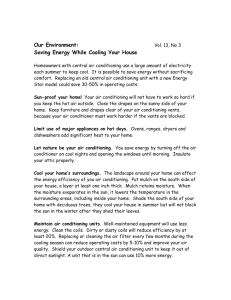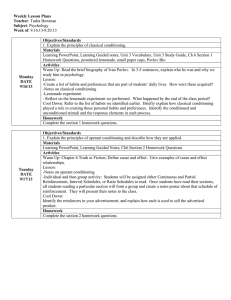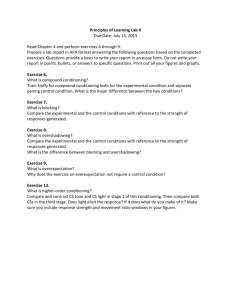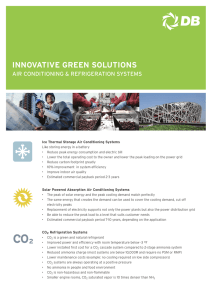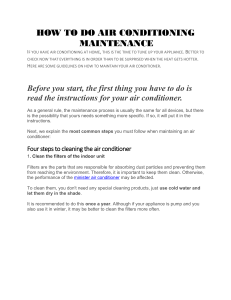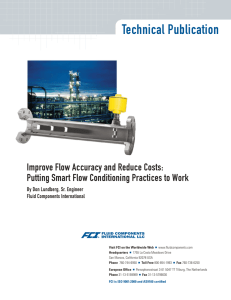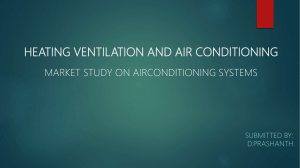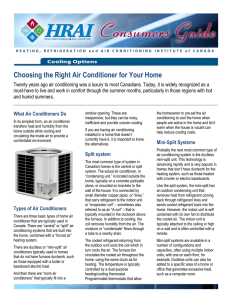The REAL Cost of Air Conditioning Mary Anne White University
advertisement
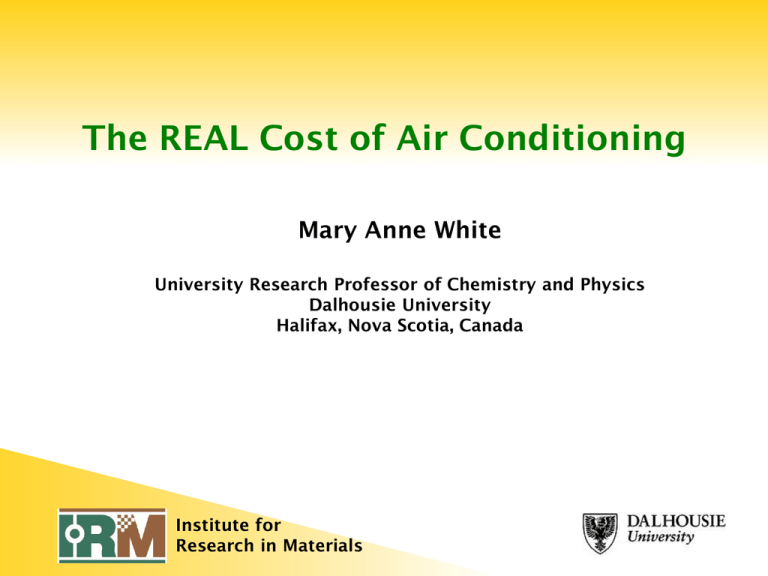
The REAL Cost of Air Conditioning Mary Anne White University Research Professor of Chemistry and Physics Dalhousie University Halifax, Nova Scotia, Canada Institute for Research in Materials 1 Our world….. scaled to fuel consumption maps from www.worldmapper.org 2 Wasted Energy The U.S. economy wastes 55% of the energy it consumes. The Atlantic, May 2008 30% coolant 5% friction 25% mobility and accessories 40% exhaust 70% of the combustion energy of gasoline goes out the tailpipe as waste heat! F. Stabler, DARPA/ONR Progress Review and DOE High Efficiency Thermoelectric Workshop, San Diego, March 2002. 3 Energy and Sustainability Scientists are working hard to make more energyefficient devices and products, but the easiest way to reduce energy consumption is to use less of it! One of the biggest wastes is air conditioning! • 75% of US homes have at least one air conditioner • heating and cooling accounts for 150 million tons of CO2 in the US annually • air conditioning and refrigeration accounts for 15% of global electricity consumption 4 Wasted Energy – AIR CONDITIONING • North American residential/commercial buildings account for 40% of energy consumption. • AC accounts for 40% of energy costs of running household in North America (compared with 5% for lights). • It costs more energy to cool by 1 oC than to heat by 1 oC! • “Seasonal temperature inversion” (rooms colder in summer than winter) is wasteful! • Japan introduced Cool Biz policy in 2005: offices kept at 28 oC from June to September; in 2007, CO2 emissions reduced by 2 million tons 5 Too low a temperature reduces worker productivity…. Keystroke analysis of office workers: Mean Correct Keystrokes per Minute 19 employees over 4 weeks in real workplace Study by Professor Alan Hedge, Cornell University, 2008 6 Bottom line: Stay cool and heat up the planet. OR Turn up the temperature on your air conditioner and: • reduce energy consumption • reduce CO2 production • directly reduce production of heat • increase worker productivity • decrease home/workplace operational costs. 7 In warm weather… Be cool…. turn UP the temperature! 8

